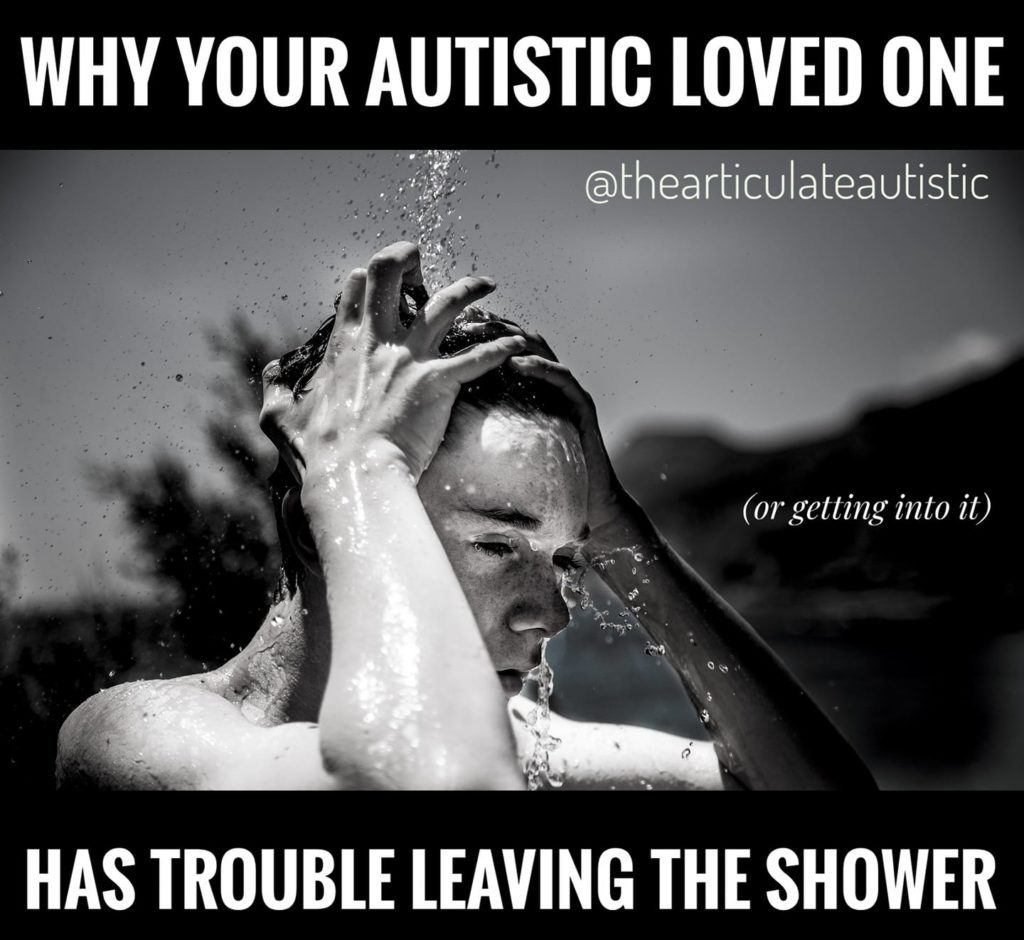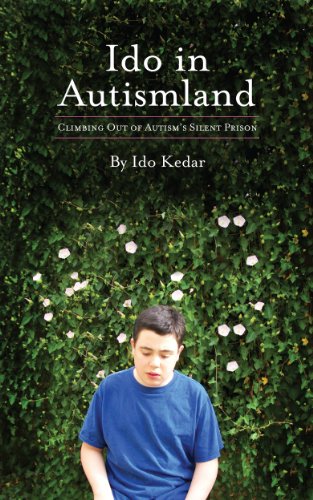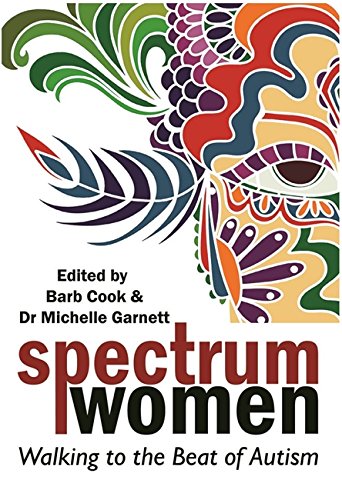Why Your Autistic Loved One Has Trouble Leaving the Shower (Or Getting Into It)

Have you noticed that your neurodivergent loved one either doesn’t want to get into the shower, but when they finally do, they don’t want to leave? Have you noticed they won’t get into bed, but once they do, they balk at the idea of crawling out from under the covers?
Are you, a neurodivergent person, someone who procrastinates on a project for weeks, but when you finally get going, you forget things like food, sleep, and bathrooms exist?
Welcome to Autistic Inertia!
I’m not sure who coined this term, but it’s brilliant, and it’s absolutely a real thing.
Neurodiverse people do not like state changes, and I mean that both literally and figuratively. Mostly, we get uncomfortable with state of being changes, but, if it involves going to another state in the country, same thing. 😉 *wink* See what I did there?
Think of an autistic person like a snowball (no, not a snowflake–no political talk here). Say you send a snowball down a hill. It kind of moseys along, taking it’s time, but then…it gathers more snow and gains more speed, and suddenly, there’s an elephant-sized ball of cold plummeting downhill with no brakes!
If it crashes into something, say, a cabin, it busts into a million tiny pieces of snow, and the cabin gets a good whollop.
We’re the snowball (neurodivergent), and sometimes you (neurotypical) are the cabin.
I’m not talking about actual abuse or assault here. I’m just talking about an autistic person crashing and burning mentally or emotionally, and inadvertently causing an NT person to feel the effects.
I can’t tell you what causes this, but I do know that I’ve always been like this, and I’ve seen lots of ND people relate to the term, “Autistic Inertia”.
(Article continues below.)
The best way to improve communication with your autistic loved one is to understand how your autistic loved one’s mind works! Intentions, motivations, and personal expressions (facial expressions or lack thereof, body language, etc.), are often quite different in autistic people than they are in neurotypical people.
Experience a better understanding of your autistic loved one by reading books about life from an autistic perspective as well as stories that feature autistic characters. You’ll have so many “Ah ha!” moments and start seeing your autistic loved one in a different light (and you’ll have a better understanding of their behaviors, which you may have been misinterpreting up until now).
Books I recommend for a better understanding of your autistic loved one:
All I know is there is something about the way we are wired that makes us want to stay, do, and feel exactly the same thing for very long periods of time (if we are comfortable).
Perhaps this is because true comfort and contentment is rare for us or because of sensory overload? I’m not sure.
I just know that to take my attention off of one thing and get it onto another is not an easy task. The same goes for the way my body feels.
If I’m in bed, I want to stay there. If I’m scrolling through social media, I don’t want to stop. If I’m in the bath, I don’t want to get out. If I’m asleep, I don’t want to be awake. If I’m working on a project, I don’t want to stop until I’m done.
– Jaime A. Heidel
It’s kind of like having a cold bucket of water splashed onto me each time I have to transition from one state of being to the next. It’s like having to switch train tracks in the middle of a smooth ride. It takes conscious and deliberate effort to pull my attention away from what I’m doing right now (unless I’ve chosen to interrupt myself), and it’s always a bit jarring.
It’s better now, but I’ve had decades of therapy and 40 years to get used to it, but it does still bother me.
That’s the explanation.
Follow me on Instagram.
Want downloadable, PDF-format copies of these blog posts to print and use with your loved ones or small class? Click here to become a Patreon supporter!










wonderful synopsis, i like the term “autistic inertia” too and definitely see it in my ND family (son, dtr and husband). Transitions have always been challenging. I help those transitions with “gentle warnings” before the time to go. As for my hubby I just try to get the food and water under his nose 😉